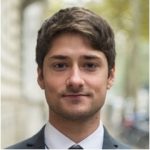
The ARC Toolbox: Artificial Languages with Rhythmicity Control
Statistical learning is the ability to extract and retain statistical regularities from the environment. In language, extracting statistical regularities—so-called transitional probabilities, TPs—is crucial for segmenting speech and learning new words. To investigate whether neural activity synchronizes with these statistical patterns, so-called neural frequency-tagging paradigms have been employed. Here, brain activity is recorded while a stream of syllables is presented at one fixed rate (e.g., 3.3 Hz) and rhythmic patterns of low-TP events are present at a different rate (e.g., 1.1 Hz). Such studies report neural tracking of both syllables and TPs; that is, for both acoustic and abstract events, respectively. However, recent criticism pointed out that the possible confounding of acoustic and abstract rhythms limits the interpretability of this work. Here, we present a new Python toolbox that minimizes this confounding by creating Artificial languages with Rhythmicity Controls (ARC). ARC features a phonological rhythmicity index (PRI) to quantify the confounding periodicity of phonological features at the TP rate. It implements a pseudo-random-walk approach to ensure unconfounded TP stationarity throughout streams of arbitrary length. We provide a step-by-step guide to generate artificial pseudowords based on a pre-specified syllable inventory and create controlled lexicon streams. Simulation results show that ARC lexicons minimize PRI and TP variance, not only relative to sets of random syllable groups, but also to benchmarking sets of artificial languages used in the prior literature. ARC should be used by future work in order to suppress the confounding of acoustics and TPs in artificial language learning experiments.
Materials
Workshop
This workshop was held on July 16th, 2024 by Lorenzo Titone and Nikola Milosevic for the Bogaerts Lab. You will need this repository if you want to work along:



